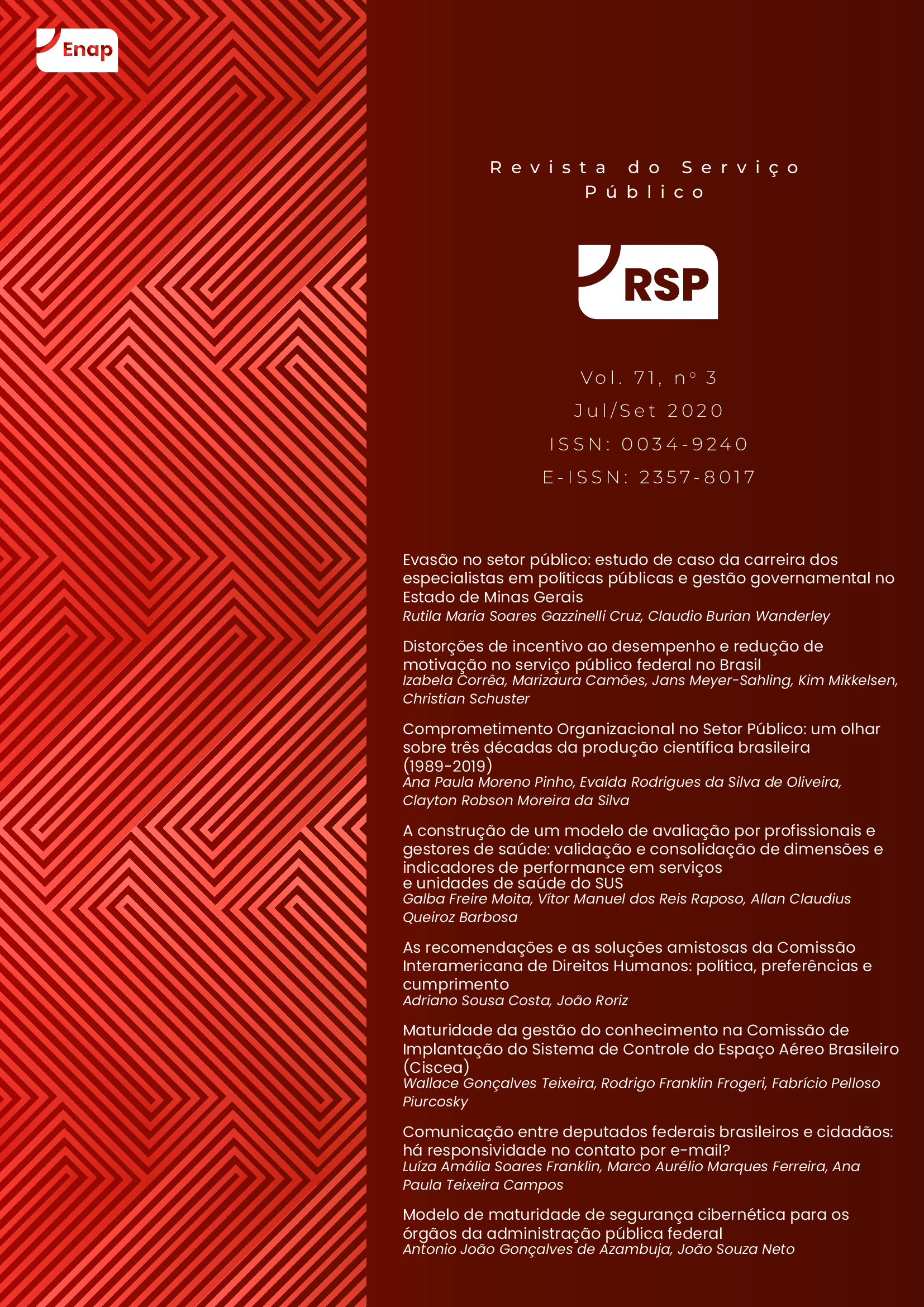Communication between Brazilian Federal Deputies and citizens: is there responsiveness in the contact by email?
DOI:
https://doi.org/10.21874/rsp.v71i3.3747Keywords:
responsiveness, information and communication technology, Legislative PowerAbstract
This paper sought to investigate the level of responsiveness of Brazilian federal deputies when contacted by a citizen through electronic media. Considering the opportunities of interaction made available by the information technology and communication (ICT) and taking into account the State public administration’s duty to dialogue with its people; the importance of assessing how the government has been answering to a citizen was emphasized. To achieve so, two experiments, which consist in sending emails to Federal Deputies and analyzing their answers in the light of the responsiveness’ concept (key principle of democracy), were conducted. Therefore, each representative received three emails, but the level of answers was only 11.16%. This number was much inferior compared to other studies which applied a likewise methodology. As to the quality of the answers, they were ordinary; consequently, considering this research object (the official emails from deputies), it was concluded that the politicians and their advisors still present a big debt in terms of fulfilling their roles of informing and dialogue with the people. Hence, the use of governmental technological resources as intermediary between congressional and people seems very far from achieving democratic effectiveness.
Downloads
Downloads
Published
How to Cite
Issue
Section
License
- A RSP adota a licença Creative Commons (CC) do tipo Atribuição – Uso Não-Comercial (BY-NC).
- A licença permite que outros remixem, adaptem e criem obra licenciada, sendo proibido o uso com fins comerciais.
- As novas obras devem fazer referência ao autor nos créditos e não podem ser usadas com fins comerciais, porém não precisam ser licenciadas sob os mesmos termos dessa licença.
- Ao publicar o artigo na RSP, o autor cede e transfere para a ENAP os direitos autorais patrimoniais referentes ao artigo.
- O artigo publicado na RSP não poderá ser divulgado em outro meio sem a devida referência à publicação de origem.
- O autor que tiver o artigo publicado na RSP deverá assinar o Termo de Concessão de Direitos Autorais (em momento oportuno a editoria da Revista entrará em contato com o autor para assinatura do Termo).



